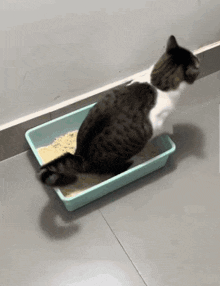School feels harder than ever this year, especially for those who have transitioned from online distance learning to in-person school. With so many extracurricular activities and an endless and continual supply of homework, and having to balance friendships and family life on top of all of that, it can be difficult to catch a break. Here are some tips that will hopefully help you and your hectic life a bit easier this difficult year.
Let us slide into your dms 🥰
Get notified of top trending articles like this one every week! (we won't spam you)1. Study Smarter, Not Harder
Although studying for hours for a test may make people feel like they have done enough to prepare for a test, it may not have even been helpful if their study sessions were done when there were many distractions or they were not focused. In fact, your time spent studying for a test can be significantly reduced by using active study methods, not passive ones.
What is passive studying, you ask? Well, it can include:
- Trying to study while watching TV
- Rereading notes
- Highlighting notes/textbook
- Watching videos for help- (this can be effective sometimes, but it should not be your only study method)
Sound familiar? We have all done this before while half-heartedly studying to study for a test, and for me at least, this has resulted in a lot of wasted time and my grades suffer when I use passive study methods.
A much more effective way of studying that will boost your grades is by using active study methods, which include:
- PRACTICE problems- I cannot emphasize this enough. Practice problems are the best way to review for a test and find your weak areas.
- Flashcards
- Explaining concepts/topics/big ideas to family and friends- by explaining them, you will find out if you really understand the topic, or if you just memorized it.
- Taking notes (If you have not already)
These methods do require more effort, but they are worth using for your grades and time management in the long run!
Here is a great pdf from the University of Arizona that lists many passive vs. Active study methods.
Take the Quiz: What Type of Notes Should I Take?
Discover the best note-taking method for your learning style!
2. Invest In a Planner
I know everybody is using Google calender and online planners these days, but there is something about having a physical planner that makes me more likely to really use it- not just schedule something and put it off for later. With a planner, you can write down your to-do list, homework, activities, and more! It can be very helpful for scheduling when you want to get certain tasks done. When a task is written in your planner, you will be more likely to remember it, and you will probably not have as many missing assignments.
One of my favorite school planners is this: Target school planner
3. Set Timers
Someone once told me, "a task will take as long as you are given to do it." This is probably a very common phrase, as it is common sense. This goes back to the topic of studying smarter, not harder. By using time management skills to get homework done, you will have more time to focus on mental health, friendships, and activities. By setting a timer, you are committing yourself to finishing a task within that amount of designated time, and not allowing yourself to procrastinate or take hours to do it.
4. Talk To Your Teachers
This is obvious, but communication is key to solving any issue in life. If your teacher is giving out too many assignments and not enough time to finish them, letting them know may fix the problem. Or, if you do not understand a certain project or assignment, asking them for help should clear questions and prevent procrastination.
5. Get Enough Sleep
Getting enough sleep each night can make the world a difference. I know from my own personal experience, it is much easier to get through the day when I feel rested. According to the CDC, teens need 8-10 hours of sleep every night to function. In addition, Lauren Hale, editor of the journal Sleep Health and associate professor of preventative medicine at Stony Brook University, states in an article with the Washington Post that: "Sleeping too little and too much are both associated with increased risk of mortality and a range of other adverse health issues: cardiovascular disease, possibly cancer and also impaired psychological well-being." These risks that are a result of being sleep deprived prove that it is imperative to get the recommended amount of sleep every night, for both your mental and physical well being.
I know that it is very difficult to get the full 8-10 hours of recommended sleep each night, especially as a stressed-out student with a lot of school-work. So, here are some tips that will hopefully help you in obtaining your desired amount of sleep:
- Don't sleep with your phone. Put it across the room, or don't leave it in your bedroom at night.
- Work on time management. (Some of the tips above can help with this)
- Create a schedule. Creating a routine will help you fall asleep earlier at night.
6. Don't overschedule yourself
I know it can be tempting, seeing how hard it seems to get into elite colleges nowadays. It may seem like bulking up on extra-curriculars is the best way to impress colleges.
However, this can lead to an enormous amount of stress and pressure, neither of which are helpful for your physical or mental well-being. In fact, it is better to think of extra-curricular in terms of depth, not breadth. Colleges want to see how involved you are in a few extracurricular activities, not how many you participated in.
Hopefully, with this advice, if you think you are an overscheduled person, you can begin to eliminate some activities that you don't think are beneficial to your college application or that you do not enjoy. This way, you can have more free time to focus on the activities that you do enjoy.
7. Exercise
Getting exercise every day can greatly improve your focus on school as well as your overall mood. According to an article published in the Primary Care Companion by Ashish Sharma, Vishal Madaan, and Frederick D. Petty, "Aerobic exercises, including jogging, swimming, cycling, walking, gardening, and dancing, have been proved to reduce anxiety and depression."
By getting 60 minutes of exercise every day (as recommended by the CDC) before sitting down to power through your homework, you may find it is much easier to get it all done. In addition, you may not feel as stressed or anxious due to the effects and benefits of exercise.
If you don't consider yourself a sporty or super active person, some activities that involve exercise that you can try include:
- Just Dance- it's fun to do with friends!
- Pilates
- Yoga- it's a lot more challenging than you would think!
- Walks or runs with your dog
8. Get Organized
This goes back to getting a planner - the more organized you get, the easier it will be to deal with school. By being organized, you won't have to worry about finding that important homework assignment that you can't remember where you put it but you find it stuffed at the bottom of your bag...
Being organized will just make your life easier overall, and it will also help with eliminating stress, allowing you to get more sleep and even better grades.
Hopefully, these tips will make your life easier, less stressful, and more manageable while you navigate high school and all the ups and downs that come along with it.

















